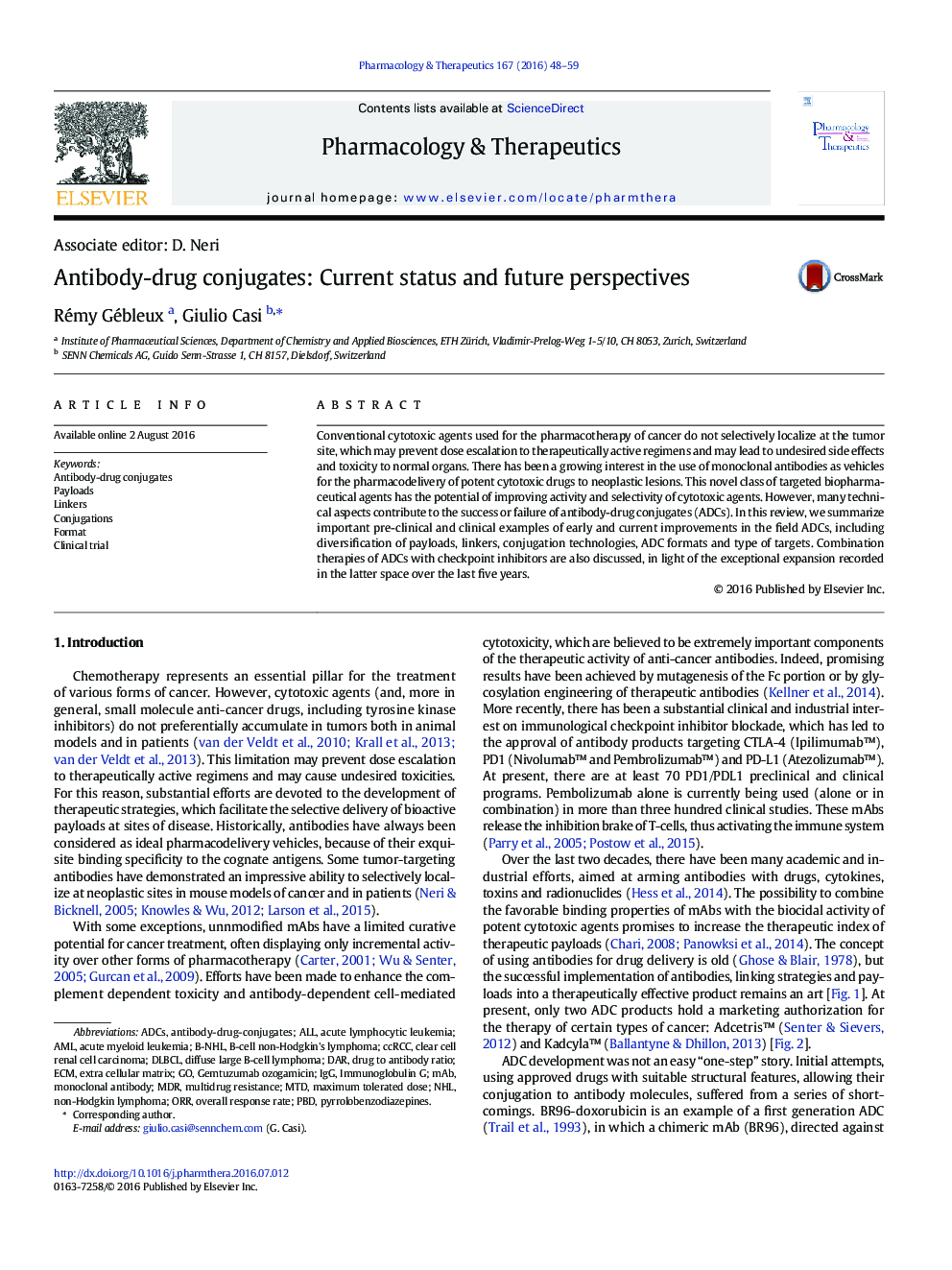| Article ID | Journal | Published Year | Pages | File Type |
|---|---|---|---|---|
| 5557822 | Pharmacology & Therapeutics | 2016 | 12 Pages |
Conventional cytotoxic agents used for the pharmacotherapy of cancer do not selectively localize at the tumor site, which may prevent dose escalation to therapeutically active regimens and may lead to undesired side effects and toxicity to normal organs. There has been a growing interest in the use of monoclonal antibodies as vehicles for the pharmacodelivery of potent cytotoxic drugs to neoplastic lesions. This novel class of targeted biopharmaceutical agents has the potential of improving activity and selectivity of cytotoxic agents. However, many technical aspects contribute to the success or failure of antibody-drug conjugates (ADCs). In this review, we summarize important pre-clinical and clinical examples of early and current improvements in the field ADCs, including diversification of payloads, linkers, conjugation technologies, ADC formats and type of targets. Combination therapies of ADCs with checkpoint inhibitors are also discussed, in light of the exceptional expansion recorded in the latter space over the last five years.
